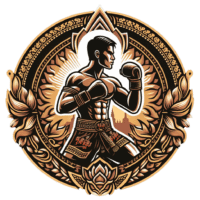Kun Lbokator (Khmer: គុនល្បុក្កតោ), also known as Bokator, is not just a martial art; it’s a living embodiment of Cambodia’s rich cultural heritage, tracing its lineage back to the first century. Honored with UNESCO recognition in 2022 as part of the Intangible Cultural Heritage of Humanity, Kun Lbokator represents more than physical combat; it’s a holistic discipline fostering mental resilience, physical strength, and a philosophy of non-violence.
At the core of Kun Lbokator lies a profound respect for nature and societal decorum, taught through mental disciplines alongside combat techniques. Masters, revered for their wisdom and often attributed with healing and protective abilities, serve as both instructors and guides, imparting valuable life lessons that extend far beyond the training arena.
Practitioners of Kun Lbokator aspire to be more than skilled fighters; they strive to be champions of justice, defenders of vulnerable communities, and advocates for environmental stewardship. Through rigorous training, they cultivate the virtues of courage, compassion, and integrity, preparing themselves to confront challenges both on and off the battlefield.
The cultural significance of Kun Lbokator is evident in its integration into religious ceremonies and festive celebrations, where it becomes a vibrant expression of Cambodia’s spiritual and artistic traditions. From ritual offerings to local deities to colorful performances at community events, Kun Lbokator enriches the cultural tapestry of Cambodian society.
Bokator, as the precursor to various Southeast Asian kickboxing styles, bears witness to the ancient martial prowess of the Khmer people. With its repertoire of 341 distinct styles, inspired by the movements of animals both real and mythical, Bokator is a testament to human ingenuity and adaptability in combat.
Throughout history, Bokator has played a pivotal role in the military strategies of Angkorian kings, contributing to their dominance over Southeast Asia for centuries. Notably, Jayavarman VII, the renowned ruler of the Khmer Empire, was reputed to be a devoted practitioner of Bokator, further solidifying its place in Cambodian history.
The revival of Bokator in modern times owes much to the efforts of Master San Kim Sean, who tirelessly worked to preserve and promote this ancient art form after his return to his motherland in 1995 on a mission to revive this almost forgotten Martial Arts of Cambodia for which he coined the easier pronounced English word “Bokator” . Despite the challenges posed by the Khmer Rouge regime in the late 1970s, Master Sean’s dedication reignited interest in Bokator, culminating in the inaugural national competition in 2006, a landmark event that marked the beginning of a new era for this venerable martial tradition.
